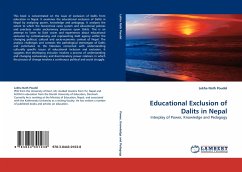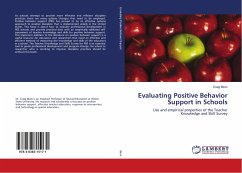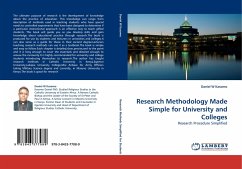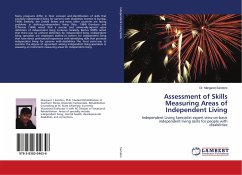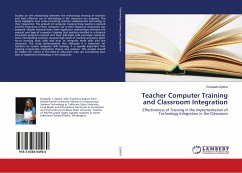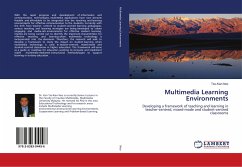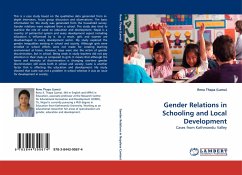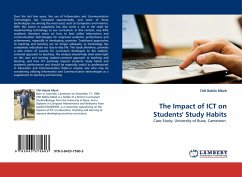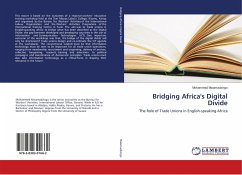
Bridging Africa's Digital Divide
The Role of Trade Unions in English-speaking Africa
Versandkostenfrei!
Versandfertig in 6-10 Tagen
32,99 €
inkl. MwSt.

PAYBACK Punkte
16 °P sammeln!
This report is based on the outcomes of a regional workers' education training workshop held at the Tom Mboya Labour College, Kisumu, Kenya and organized by the Bureau for Workers' Activities of the International Labour Organization and the Workers' Activities Programme of the International Training Centre in Turin. The aim was to trade unions in English-speaking Africa to bridge what has been described as the Digital Divide: the gap between developed and developing countries in the use of Information and Communication Technologies (ICT). One important outcome of the workshop was that, the bri...
This report is based on the outcomes of a regional workers' education training workshop held at the Tom Mboya Labour College, Kisumu, Kenya and organized by the Bureau for Workers' Activities of the International Labour Organization and the Workers' Activities Programme of the International Training Centre in Turin. The aim was to trade unions in English-speaking Africa to bridge what has been described as the Digital Divide: the gap between developed and developing countries in the use of Information and Communication Technologies (ICT). One important outcome of the workshop was that, the bridge of the digital divide will only be shortened if trade unions design and co-ordinate the ICT agenda at the workplaces. The conventional wisdom must be that information technology must be seen to be important for all trade union operations, ranging from membership recruitment and organising, delivery of services, collective bargaining, research, training and education, to political campaigns and maintenance of democratic principles. Trade unions must also take information technology as a critical force in shaping their relevance in the future.



